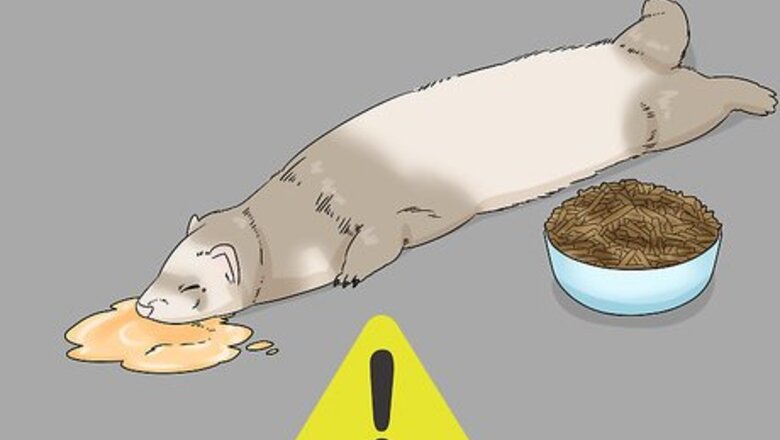
views
X
Trustworthy Source
PubMed Central
Journal archive from the U.S. National Institutes of Health
Go to source
If you notice your ferret vomiting or having diarrhea, call your vet immediately to schedule an appointment. They will be able to assist in diagnosis and develop a care plan that may include hospitalization, an altered diet, medication, and rest.
Recognizing ECE
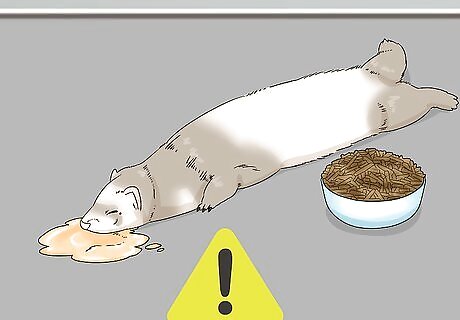
Monitor your ferret’s symptoms. Symptoms of ECE generally start to show up 48 to 72 hours after exposure. At first, most ferrets will experience a sudden episode of not eating, lethargy, and repeated vomiting. Other symptoms include: Green diarrhea that is slimy, watery, or contains mucus Sudden weight loss Periods of recovery followed by relapse
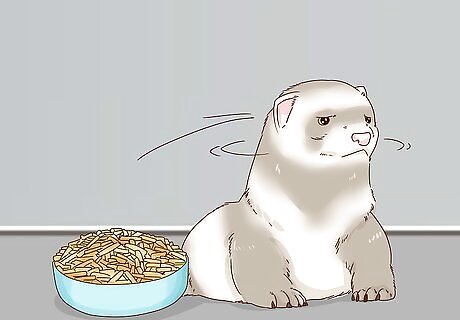
Consider your ferret’s symptoms relative to its age. Middle-aged and older ferrets generally have more severe symptoms. Ferrets under 16 weeks old will typically have mild symptoms or show no symptoms at all. If you notice mild symptoms in a young ferret, make a vet appointment immediately. Just because the symptoms aren’t severe doesn’t mean that you can forego vet attention. Alternatively, mild symptoms in an older ferret may warrant a call to your vet to see if an appointment is necessary. Severe symptoms always require immediate attention.
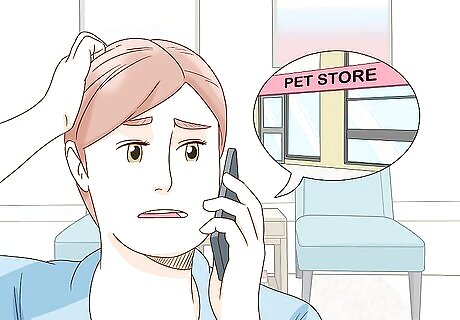
Ask your shelter or pet store about outbreaks. Ferrets recently adopted from the store or a rescue are at the greatest risk for contracting the virus. If you have recently adopted your ferret, call your pet store or rescue and ask them if other ferrets are exhibiting symptoms. If they are, this is a strong indicator your ferret has the disease.
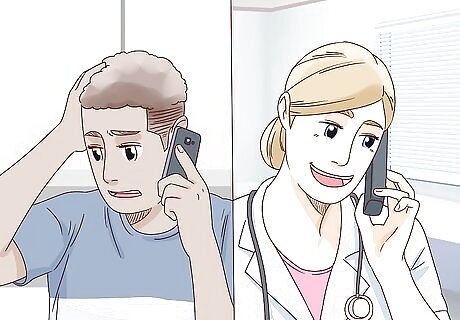
Make a vet appointment. If you notice mucus in your ferret’s diarrhea, call your small animal vet and make an appointment as soon as possible. Proper diagnosis can only come from your vet. Once they know that the coronavirus is causing the symptoms, they will be able to develop an appropriate treatment plan.
Treating the Virus
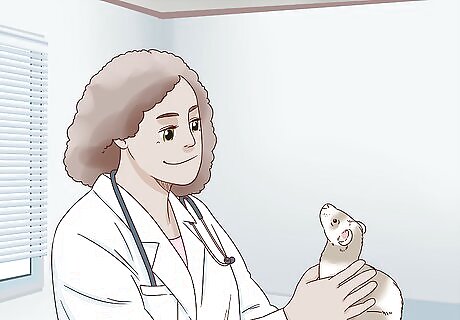
Have your ferret hospitalized. The first step in treatment for ECE is typically to have your ferret remain in care at your small animal hospital until the acute phase of the virus has passed. Infected ferrets often need IV fluids and supplemental nutrition, as well as medications including antacids and antibiotics.

Talk to your vet about a high calorie diet at home. While recovering, many ferrets reject kibble, but will typically eat a higher calorie food. Talk to your vet about recommendations for a high calorie food, and ask how long your ferret will need a high calorie diet. Many ferrets will accept chicken flavored baby food along with high-calorie dietary supplements until the diarrhea is completely gone. If your ferret is struggling to eat, warming the food up to an average body temperature of about 102°F (39° C) and feeding it with a syringe may help.
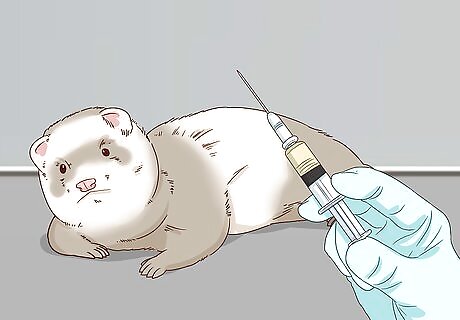
Maintain a regular medication schedule. Your ferret may still need medication once it has come home with you. Talk to your vet about when and how to administer your ferret’s medication, and follow their directions as closely as possible. The exact medications your ferret needs will vary depending upon what symptoms remain and what treatment your vet recommends.
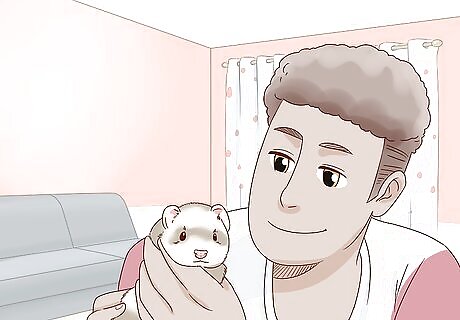
Carefully monitor your ferret for recurrent symptoms. Ferrets with ECE can appear to be fully recovered, but may relapse later. Monitor your ferret closely for 2-3 months after its initial treatment for recurrent symptoms, especially vomiting and diarrhea. If the symptoms return, call your vet or small animal hospital immediately to see what treatment is necessary.
Preventing ECE
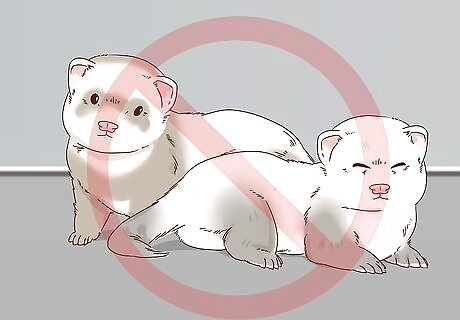
Keep recently recovered pets away from other ferrets. Ferrets are capable of spreading ECE for up to 6 months after their initial recovery. Help keep all the ferrets you know safe and virus-free by keeping them away from other ferrets, including those in your household, for at least 6 months. If you have multiple ferrets in your house, you may need to set aside 1 room for your recovered ferret. Do not let it out of this room, and do not let your other ferrets in.
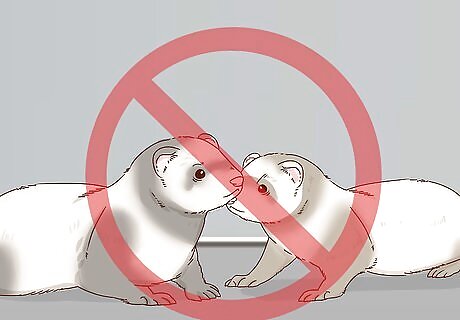
Avoid contact with unknown ferrets. ECE is caused by a virus that spreads from one ferret to another. Try to avoid bringing your ferret to places with other ferrets that you don’t know. This decreases the chance that your ferret will contract the virus. If you handle ferrets outside your home, wash your hands thoroughly with soap and water and change your clothes before handling your own ferret.
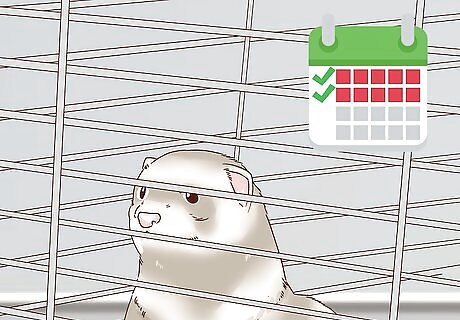
Quarantine any new ferrets for at least 2 weeks. If you bring a new ferret into your home, keep it separate from your other ferrets for at least 2 weeks before allowing them to interact. Take the new ferret to the vet immediately if you see any signs of illness. Avoid bringing home ferrets that appear ill or lethargic, and ask the pet store or breeder about the new ferret’s health history.
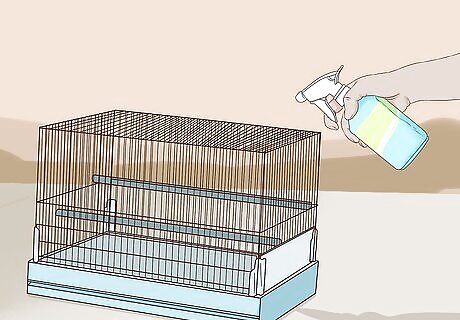
Clean and disinfect your ferret’s environment regularly. Ferrets need a clean environment, just like people. Look for a pet-safe cleaner, available at most pet stores. Use it on a weekly basis to disinfect your ferret’s cage, along with any surfaces in your home your ferret regularly uses. Wash food and water dishes daily with dish soap and hot water.
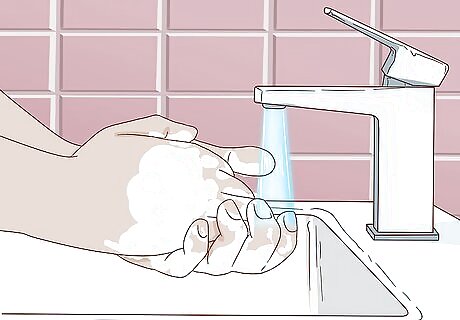
Wash your hands after handling your ferret. Wash your hands after any time you handle your ferret. This helps prevent germs, viruses, and bacteria from transferring from your ferret to any other surfaces in your house where they could be picked up later.











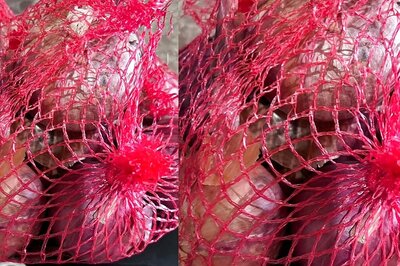








Comments
0 comment